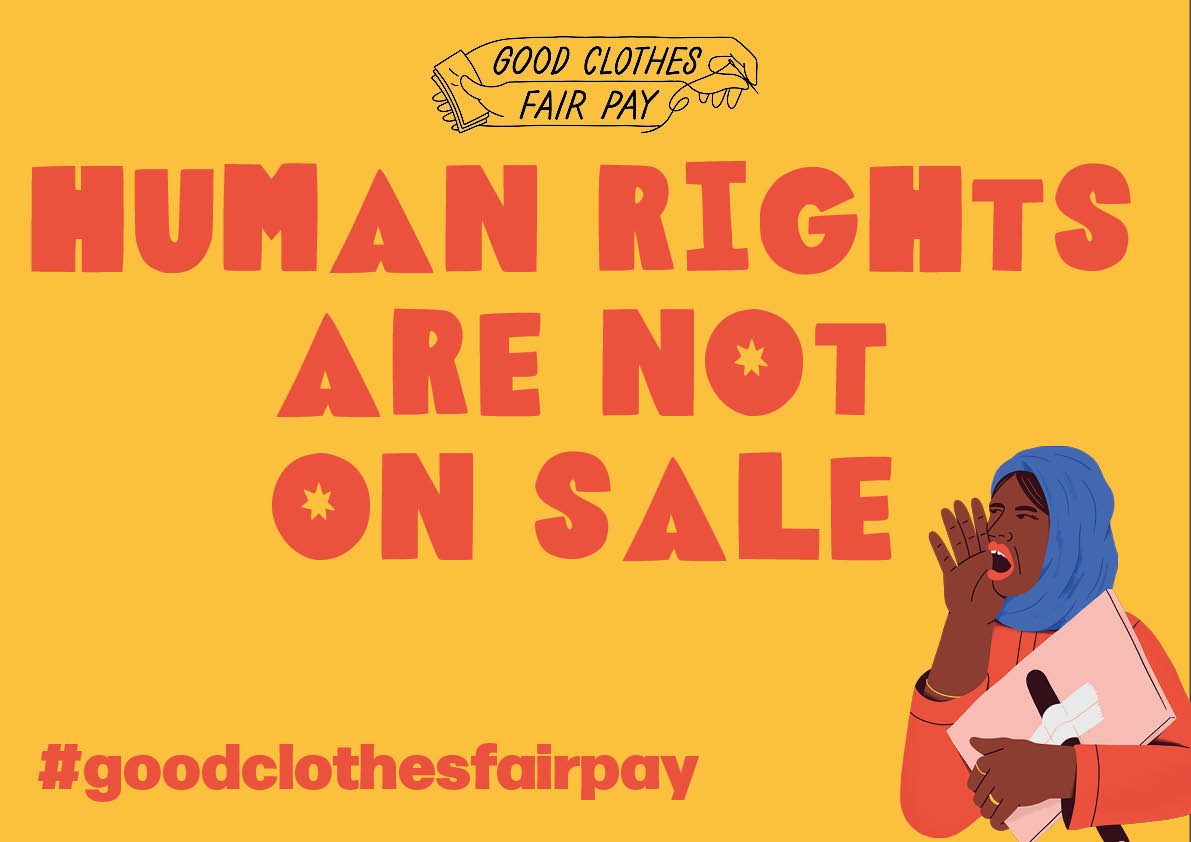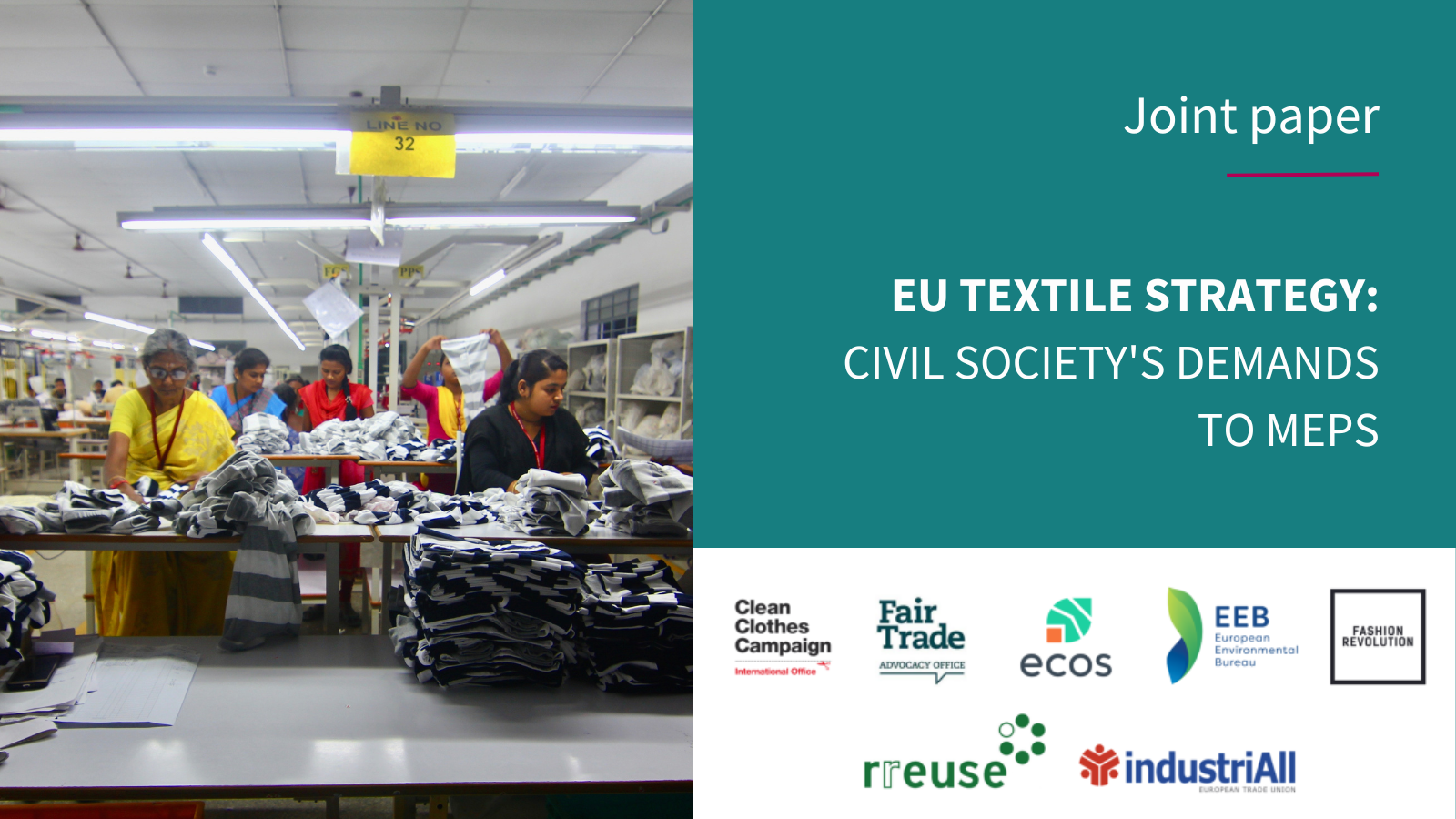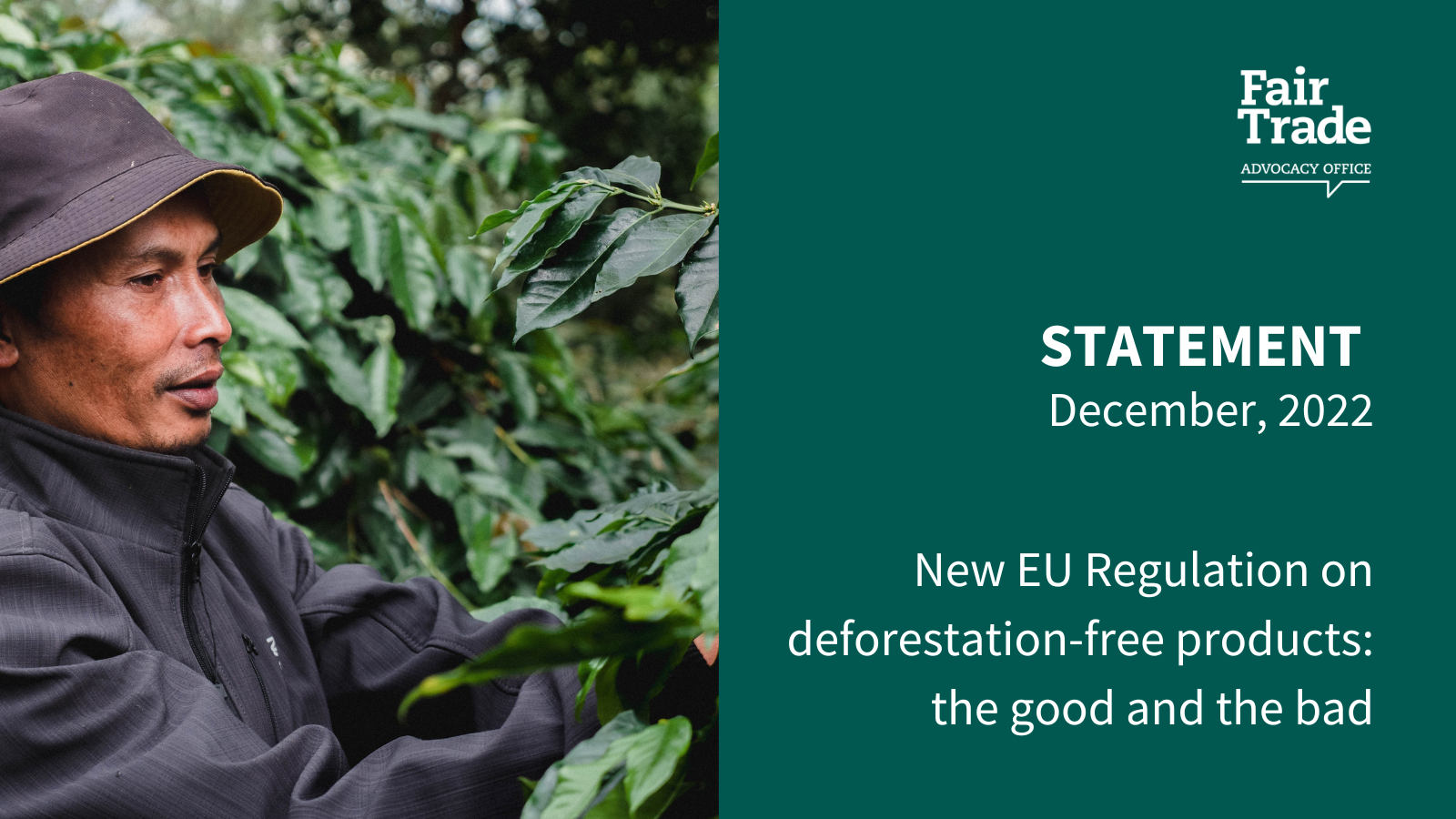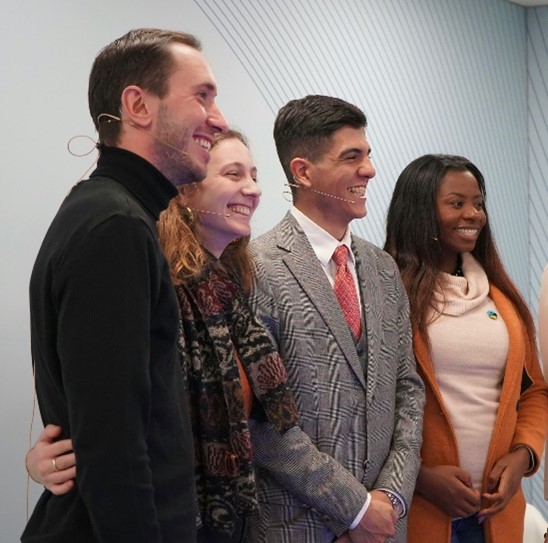
Black Friday rhymes with great deals and aggressive discounts, including in the clothing sector. In the last decade or so, it has spread from the US across the globe to become the biggest shopping event of the year in many countries. But how is it possible for brands to slash prices to such extent and even extend sales in the days before and after Black Friday, when the prices they charge the rest of the year are insufficient to pay their workers living wages?
Let’s unpack!
First, it is important not to forget that for many people, Black Friday is one of the only times in the year where they can buy needed goods at a price that they can afford. This year, it may be the case for an increasing number of people, as food and energy prices are soaring around the world.
However, the scale of “exciting” deals and “limited” offers are designed to make customers feel overwhelmed with choice, to stimulate a sense of false urgency and in the end, to trigger us to purchase articles that we do not need, just because they are cheap.
Fast fashion brands can sustain this model thanks to their purchasing, trading and pricing practices, the conditions under which they buy the clothes they sell us from the manufacturers. They typically adopt practices which allow them to renew collections several times a month throughout the year, produce large quantities of clothes at a low unit price, and apply huge discounts during sales, including on Black Friday.
But these practices have a direct impact on the human rights of the workers who make these clothes and on our planet. The contract, order, pricing and payment terms between the suppliers (the factories where our clothes are made) and their buyers (the brands that sell these clothes to us) directly affect the ability of suppliers to respect the human rights of their workers.
How?
- Low buying prices: due to the high competition between small suppliers in the garment sector, brands are able to purchase orders for very low prices, often below the cost of production. Two thirds of suppliers have already accepted a price below total production costs per unit because they feared losing business (ILO study, 2017)[1]. Worse, when the minimum wage almost doubled in Bangladesh in 2014 from 3,000 to 5,300 Taka, almost no buyers agreed to a price increase to reflect increasing labour costs[2]. It is well documented (ILO, EU) that most companies do not check whether their purchasing prices allow their suppliers to implement living wages.
- Short lead times: to keep up with renewing collections in a short time frame, making available huge amounts of styles, sudden changes in order volumes, etc., deadlines for the manufacturing of products are often unreasonably short. Like above, because of high competition between suppliers, they may lose orders if they refuse to reduce the time between the date of the order and the date the products are shipped out. To meet such deadlines, suppliers often resort to excessive and forced overtime, or turn to unauthorised subcontracting, often to informal workers based at home who are exposed to particularly acute risks and bad working conditions.
Other irresponsible and unfair purchasing practices include changing or cancelling orders at the last minute, late or delayed payments, unilateral amendment of contract terms or shifting the risks on the suppliers in contractual terms. Other impacts on human rights include cuts in wages, social security contributions, health and safety facilities, delays in payment of wages (even no payment of wages in cases of sudden cancellation, like often was the case during COVID-19), the imposition of unreasonable production quotas per worker, increases in risks of violence and harassment.
This is possible because garment supply chains are buyer-driven: brands and retailers have a lot more power than their suppliers, which allows them to control the activities of companies in the supply chain that they do not own, who in turn transfer this pressure to the workers[3]. This power imbalance also creates a culture of fear where suppliers tend to not sue the brands for those of the unfair purchasing practices that are illegal.
The business model of fast fashion enabled by the above mentioned irresponsible and unfair purchasing practices also leads to overproduction. The amount of overproduction is unknown due to lack of transparency by brands, but there are estimations of 30% of produced garments are never sold, and often these are blatantly destroyed.[4]
How can Good Clothes, Fair Pay help change this?
Good Clothes, Fair Pay not only calls for living wage legislation across the garment sector, it also calls for the prohibition of unfair trading practices which cause, or contribute to, harms to workers. These include:
- Buyer paying the supplier later than 60 days after the end of an agreed delivery period;
- Buyer cancelling orders without notice;
- Buyer changes or fails to provide complete information regarding the terms;
- Buyer requiring the supplier to pay for damages that occur after ownership has been transferred to the buyer;
- Buyer refusing to agree on a production price that enables suppliers paying living wages to their workers.
We are convinced regulating brands’ purchasing practices so that they become fair will lift one of the key obstacles to living wages being paid to the people who make our clothes.
Coming back to Black Friday
Right now, suppliers are pressured to produce more clothes in shorter time frames at lower cost, ultimately leading to overproduction and waste and massive human rights violations. Now is the time for a systemic shift away from fast fashion. Putting fairness at the centre of fashion will not only result in increased respect for human rights but would also help the whole sector move away from overproduction and excessive waste, thereby reducing its environment and climate impact. Join the movement and sign Good Clothes, Fair Pay!
A silver lining is that according to a recent report, Black Friday’s popularity among consumers is dropping, with sales declining every year[5]. One of the factors for this loss in popularity could very well be sustainability concerns, which push consumers to make more conscious decisions in what they buy. Consumers expect more from their favourite brands – so let’s change the fashion industry!
[1] ILO, Purchasing practices and low wages in global supply chains: empirical cases from the garment industry, 2017. Available here.
[2] ILO, Purchasing practices and low wages in global supply chains: empirical cases from the garment industry, 2017. Available here.
[3] ILO, Purchasing practices and low wages in global supply chains: empirical cases from the garment industry, 2017. Available here.
[4] Fashion United, Infographic: the extent of overproduction in the fashion industry, Marjorie van Elven, 2018. Available here.
[5] Fashion United, New report suggests Black Friday’s popularity is continuing to dip, Rachel Douglass, 2022. Available here.




